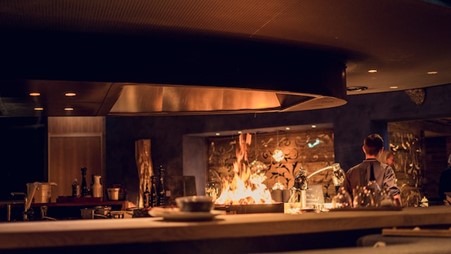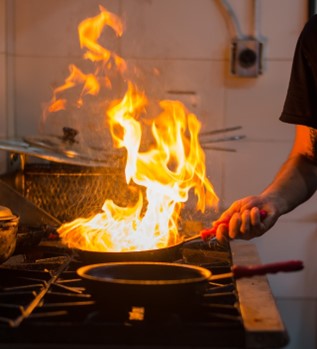The US Fire Administration’s data shows commercial kitchen fires wreak around $172 million worth of havoc each year. From unbridled property damage to irreplaceable loss of life, kitchen fires are extremely dangerous, necessitating proper prevention methods.
Devin Doyle of Newport Beach says that business owners should adopt expert-given strategies, such as those outlined below, to decrease the likelihood of damage to themselves, their employees, and their properties.
Remove Grease Daily
Kitchen 101: remove grease every single day. As the number one cause of commercial kitchen fires, grease isn’t just highly flammable, but splashes easily, spreading the fire effortlessly across the establishment. Not to mention it’s often found near open flames.
Thoroughly cleaning grease and all surfaces touched by it every day is a non-negotiable. Ventilation systems designed to catch grease should be particularly cared for.
Follow Manufacturer’s Orders and Service Regularly
Improperly installed or utilized equipment is a huge fire hazard. While people may not read through manufacturer’s warnings/instructions in their personal lives, it’s imperative to do so in a commercial kitchen setting.
Deep fryers, ovens, and other equipment should be installed by a professional and used according to the manual. Naturally, cleaning and maintenance should also be conducted properly and regularly.
Short-term savings are rampant when cutting corners on installation costs. However, it only ends up costing more in the long run.
Appropriate Employee Dress and Training
Commercial kitchen owners must ensure their staff are dressed appropriately for the job — no loose clothing, aprons at all times, and sleeves rolled up. Those with long hair should tie it back, wearing a hair net at all times. Simple yet integral, proper clothing can prevent a disastrous fire.
In a similar vein, employees should be adequately trained to respond to grease fires. From knowing where the extinguishers are to using the equipment properly to response methods, everybody in and around the kitchen must be fully informed to prevent substantial damage, personal injury, and loss of life.
Professional Ventilation and Extractor Systems
Extractor and ventilation systems require expert installation to stop fires from rapidly spreading.
Once flames reach the ceiling, they can flow through ducts, affecting every part of the building. So, all ventilation systems, canopy hoods, extractor fans, and baffle grease filters must be professionally installed and regularly maintained.

Always Keep a Safe Environment
Kitchens should be regularly inspected for trip hazards, frayed electrical wires, and proximity of flammable items to flames/heat sources. Even though fires can spark at any time, ensuring a safe environment is one of the easiest yet best prevention methods.
Install Fire Suppression Systems
Restaurants are more prone to fires than any other commercial space due to high heat exposure. Thus, fire suppression systems are a non-negotiable for working kitchens as they’ll prevent the fire from engulfing the entire establishment.
While there are many components of a suppression system, extinguishers and sprinklers are perhaps the most vital. Not only do they protect against fire damage, but they offer people higher chances of escaping the flames.
With these strategies, commercial kitchens can prevent fires, protect lives, and preserve properties.

